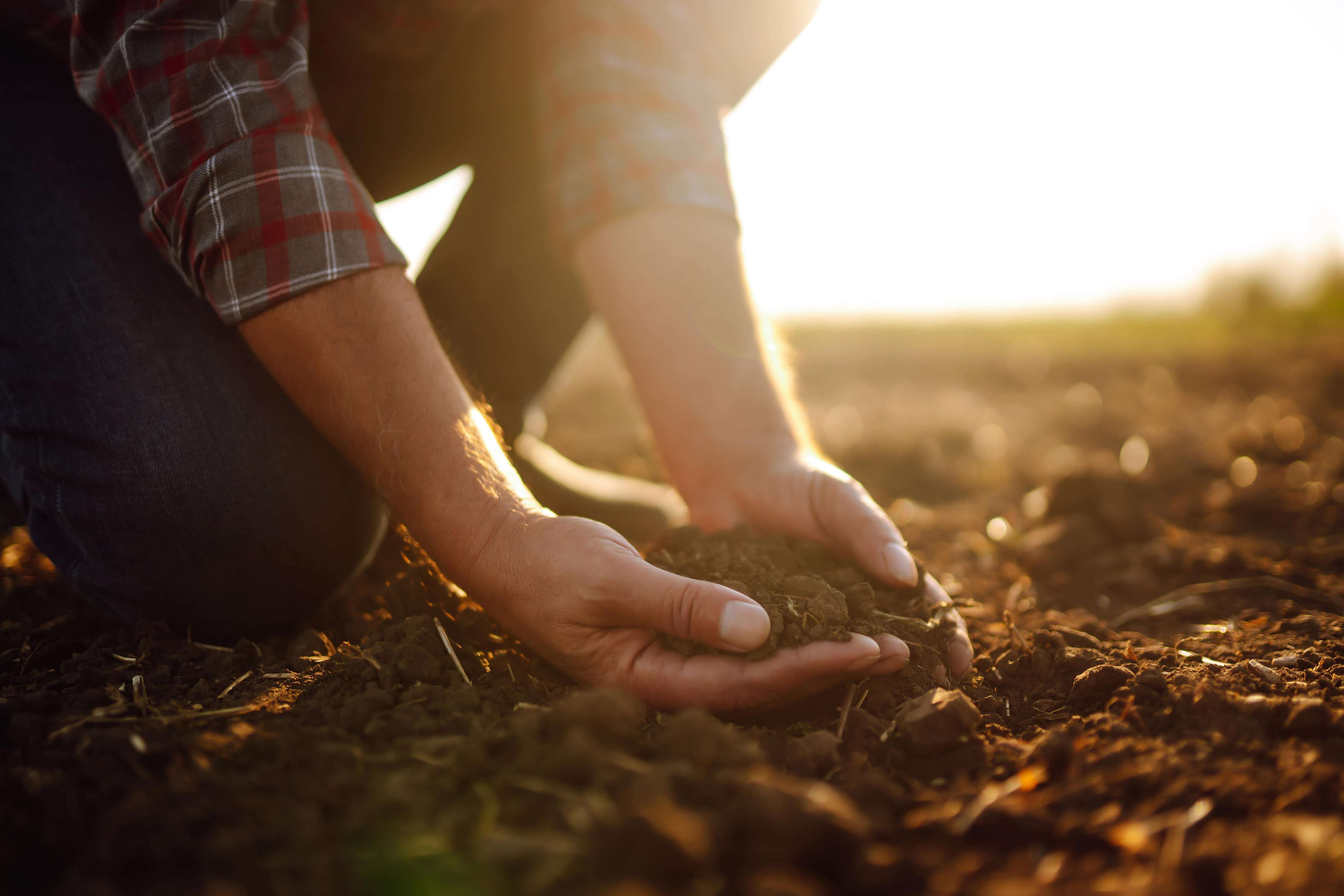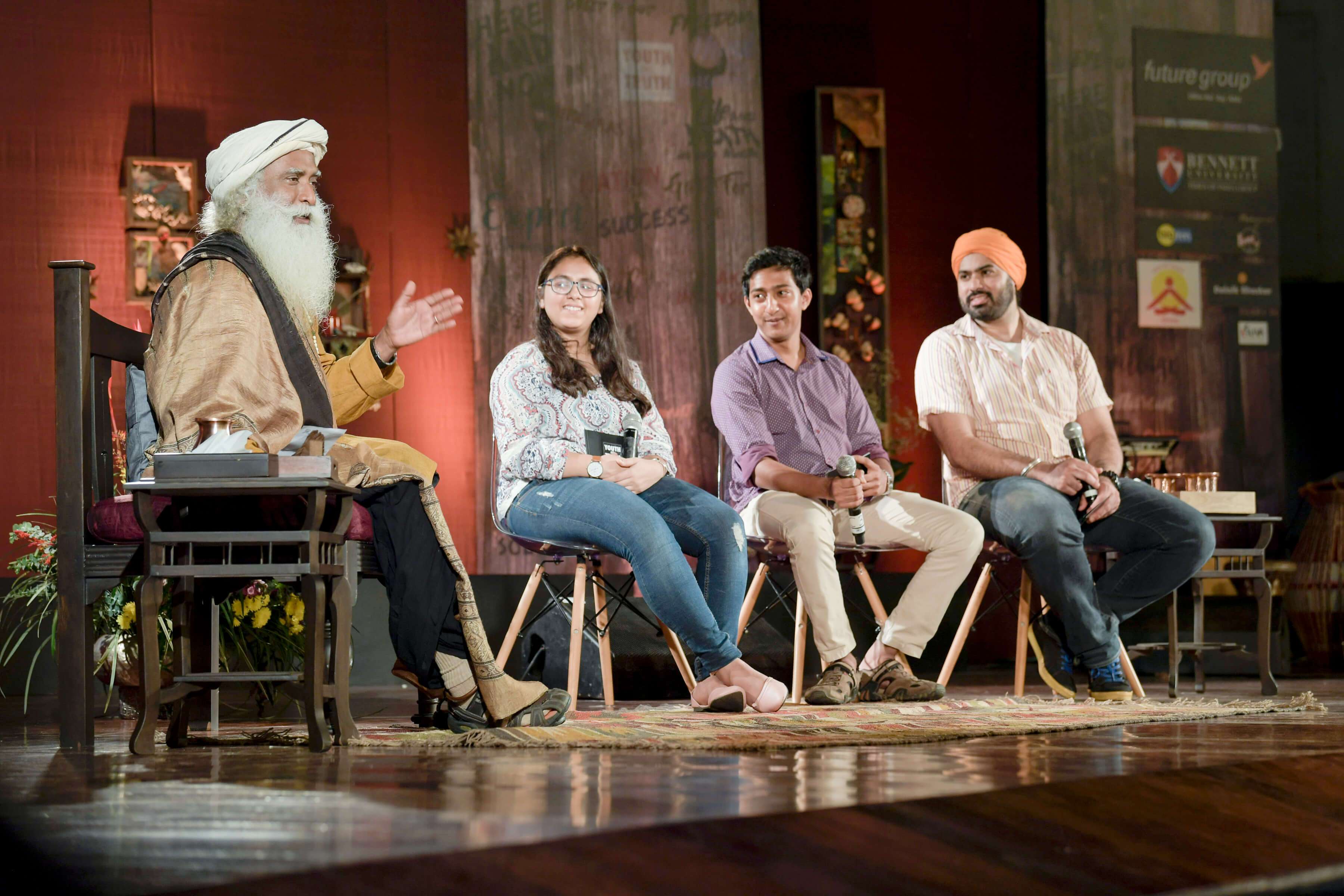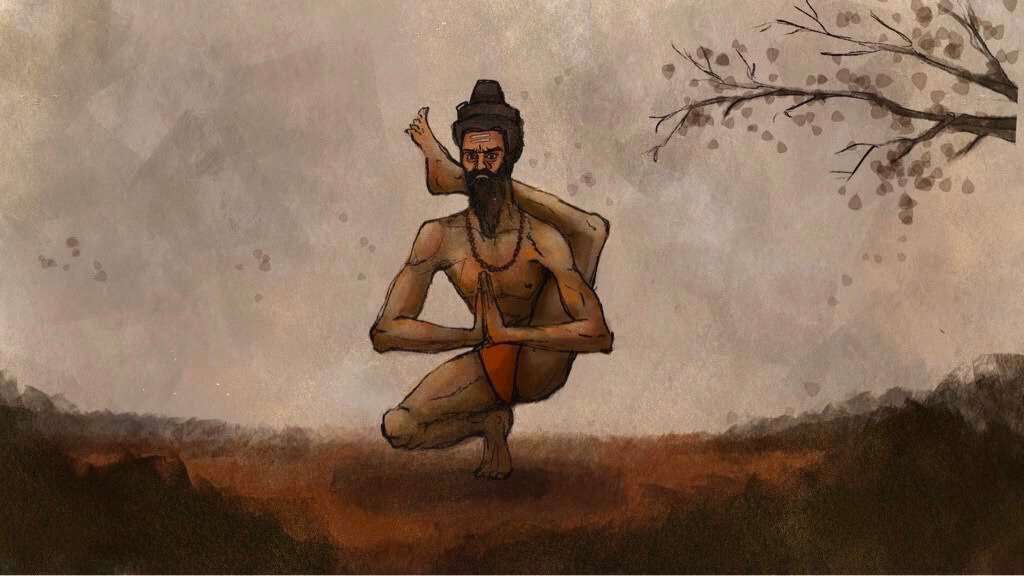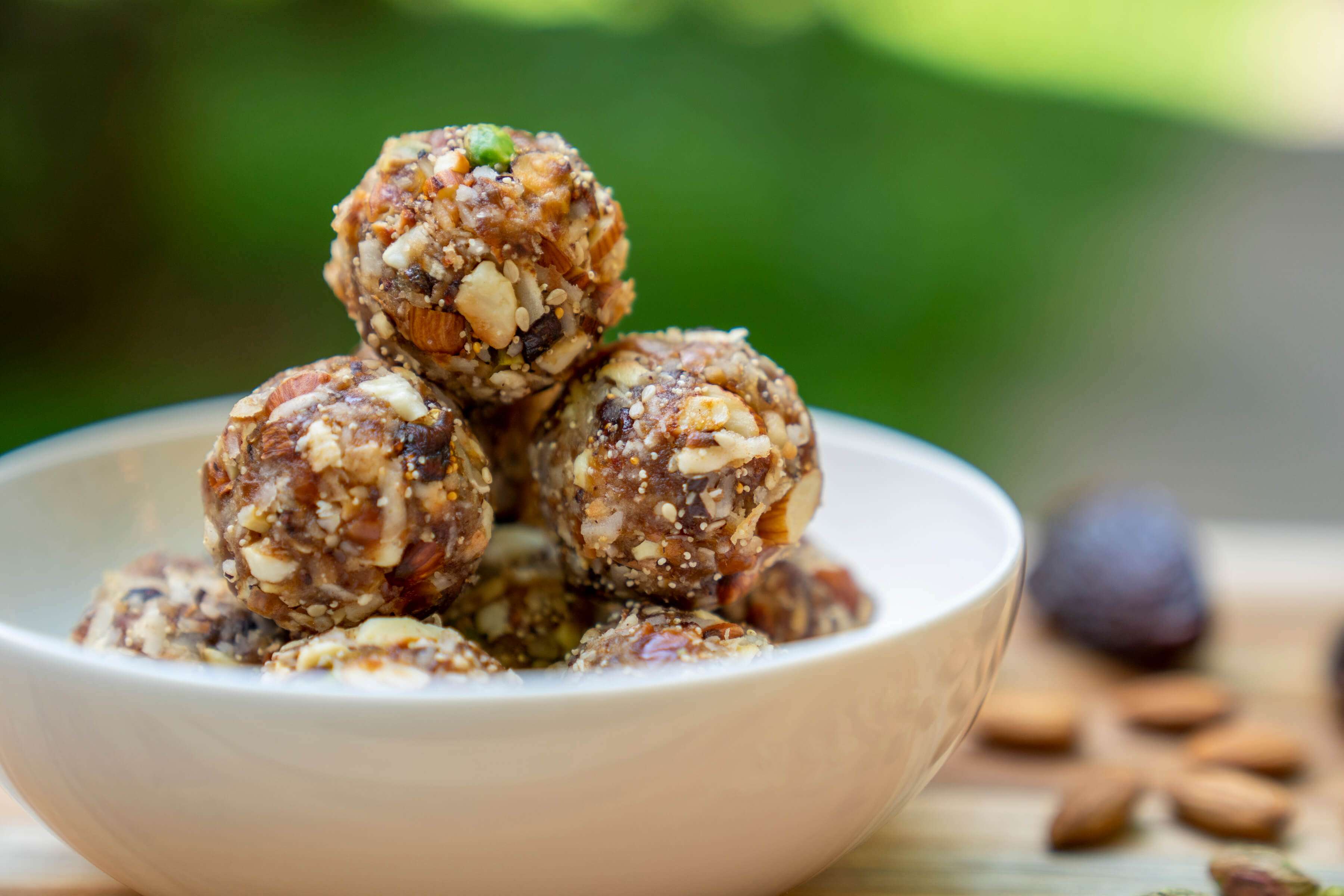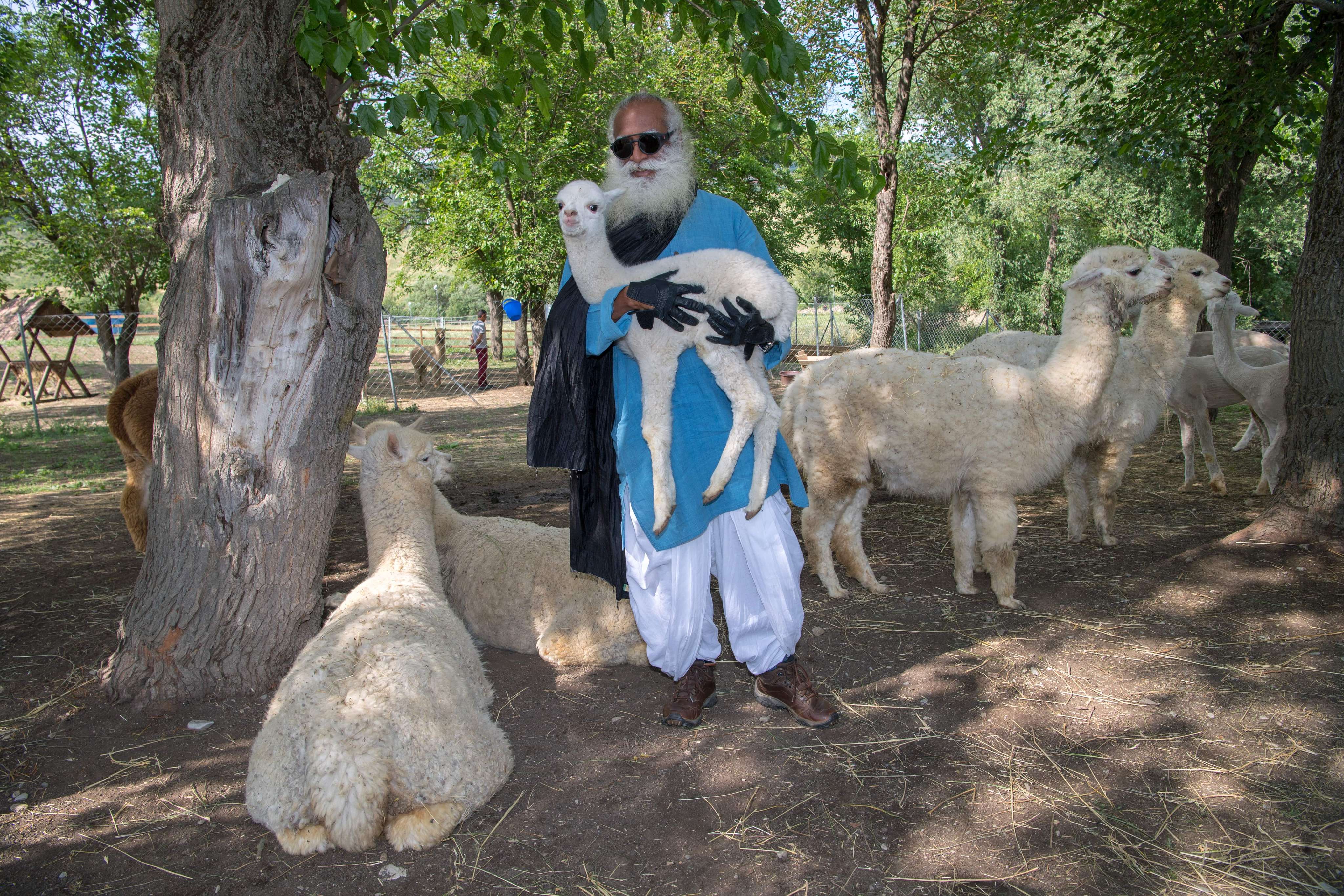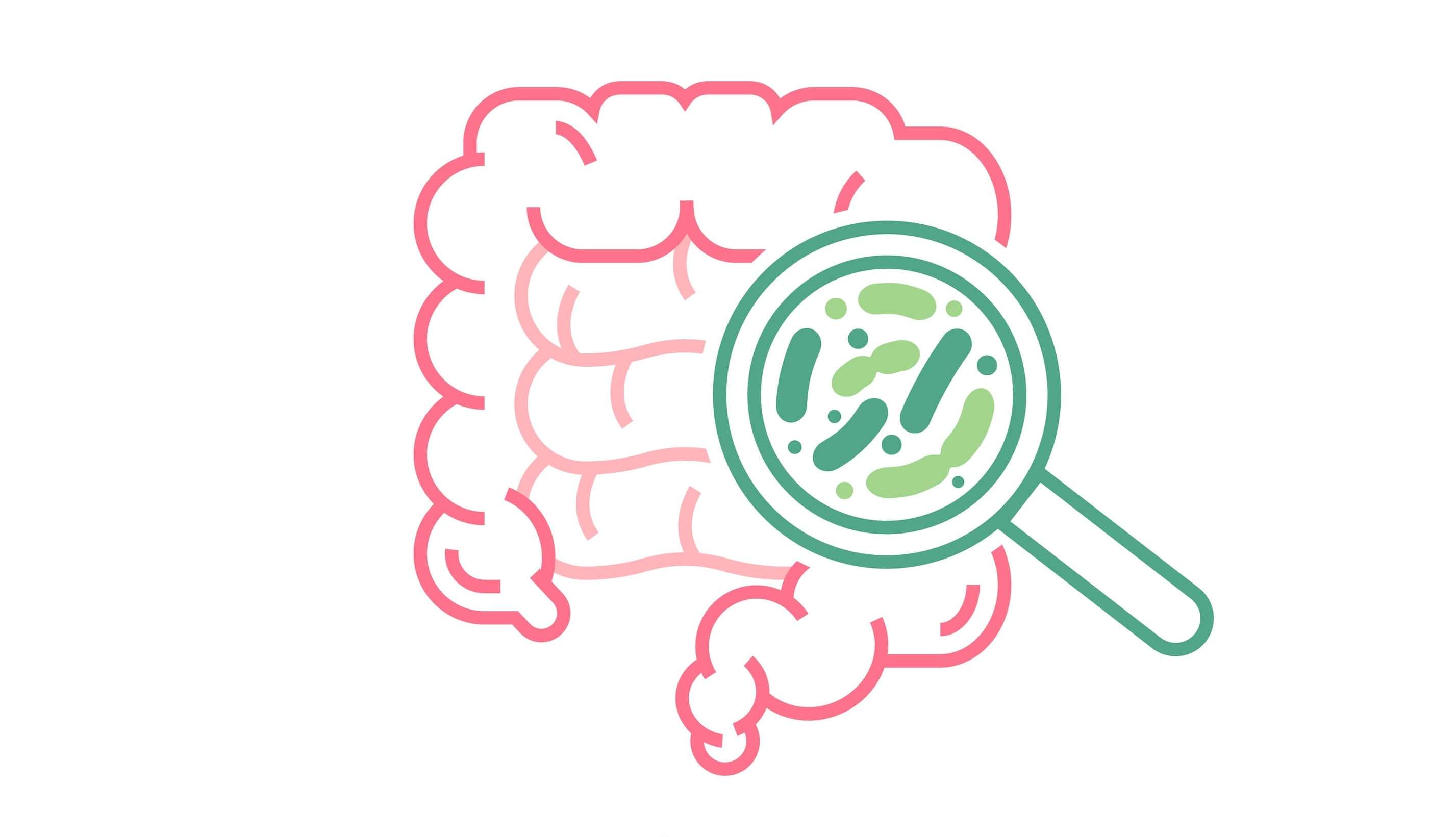
How Trillions of Bacteria Keep Us Alive
Interviewer: Could you please help us better understand what the microbiome is, and why it is so important for the soil and our health?
Dr. Megan Rossi: Our gut health depends on the trillions of bacteria that live along our digestive tract. They are incredibly important for our overall health. In fact, we probably couldn’t survive without them. But, there is another ecosystem teeming with trillions of bacteria that we probably couldn’t survive without either, and that is soil. In fact, soil is incredibly important for things like climate change and nutrient cycling, but it’s also really important for our gut health because without soil, we probably wouldn’t be very good at producing our gut bacteria’s favorite food – plants.
Think of it like this: no soil, no plants; no plants, very unhappy gut bacteria, and poor health outcomes for us.

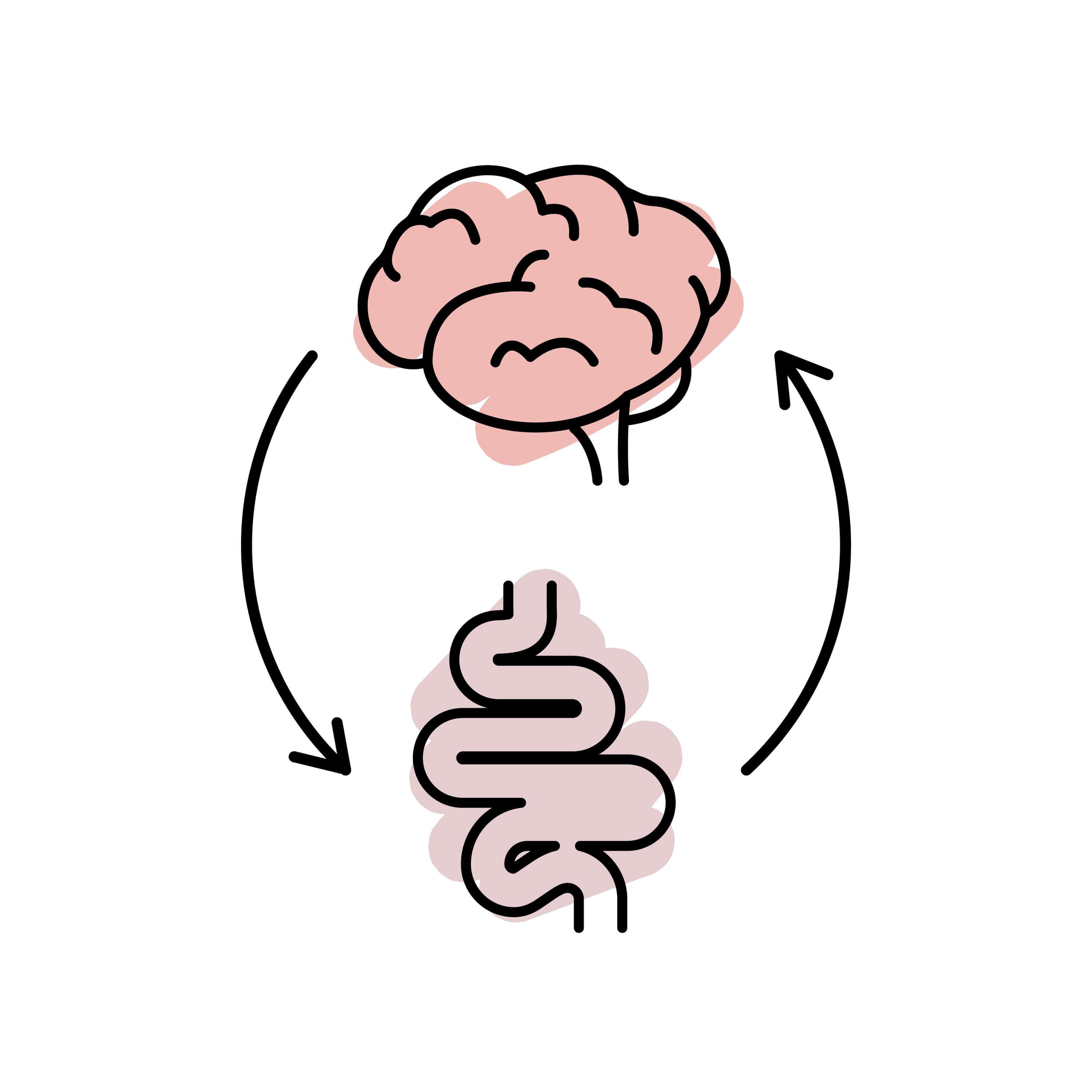
The Gut As Your Second Brain
Interviewer: People say the gut is our “second brain.” Could you tell us why?
Dr. Megan Rossi: We’ve known for over a century that there is this two-way communication between our gut and our brain. In fact, our gut is quite unique, and it functions without our brain telling it what to do, and that’s originally why we called it our second brain. That also refers to the enteric nervous system[1], where hundreds of millions of nerves which really feed and talk and make the gut do what it does, i.e., digestion. However, more recently, we have been looking at a new key player in this gut–brain axis, and that, of course, is the trillions of bacteria, i.e., our gut microbiome.
Eating more plants is key not only for our gut bacteria but also things like our mental health.
And these microorganisms have been shown to do things like communicate to our brain. In fact, clinical trials have shown that eating more plants in our diet, i.e., nourishing the gut bacteria, can bring significant improvements in people’s mental health. So, eating more plants is key not only for our gut bacteria but also things like our mental health.
[1] A large division of the peripheral nervous system (PNS) that can control gastrointestinal behavior independently of central nervous system (CNS) input.

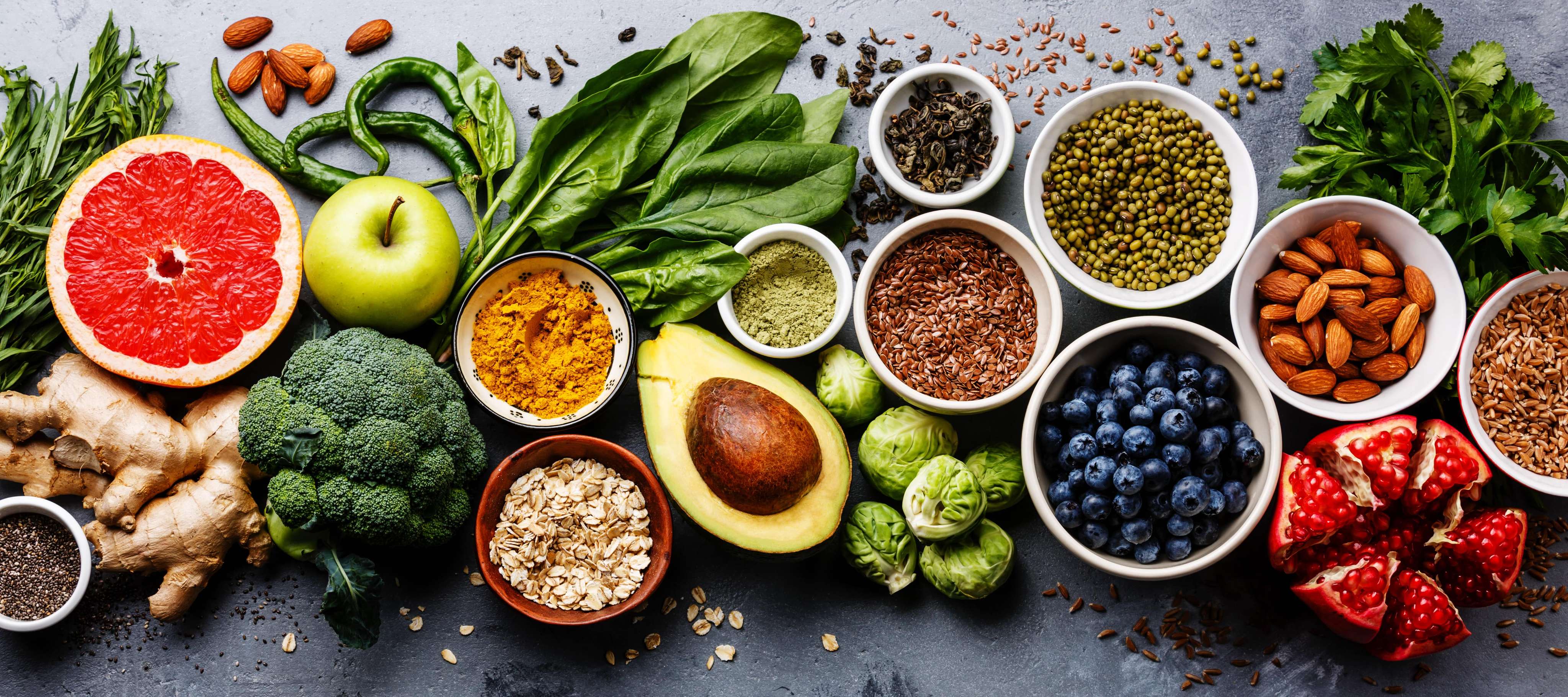
Interviewer: Could you talk about the importance of nutritious food for a healthy human?
Dr. Megan Rossi: We know how incredibly important nutrition is for our gut health and overall health because the nutrient density of foods is correlated with longevity, better heart health, and metabolism rate. Plants are our gut bacteria’s favorite food. The reason for that is the backbone of plants is a nutrient called fiber. I think a lot of us know we need to eat more fiber in our diet, but not many people understand why dietary fiber is so important for us.
The nutrient density of foods is correlated with longevity, better heart health, and metabolism rate.
Human cells actually can’t digest fiber. When we eat fiber, it travels through most of our digestive tract undigested until it gets into the final part where we have trillions of bacteria that start to eat and ferment the fiber. With that fiber, the bacteria produce a range of different beneficial chemicals which strengthen our gut lining, help regulate our appetite, and even are thought to communicate to our brain.


A Step-By-Step Breakdown of How Our Digestion Actually Works
Interviewer: Can you tell us how our body breaks down food?
Dr. Megan Rossi: Essentially, there are four parts to our digestive tract, which is a nine-meter-long tube that delivers food from entry all the way to exit. Digestion begins in the mouth, where we not only start to physically break down the food by chewing it, but we actually have enzymes in our saliva that start to chemically break it down.
When we swallow the food, it goes down our esophagus, which is our food pipe, and then it reaches the stomach, which is very much like a washing machine because it not only physically throws around the food – there are enzymes and detergents that start to chemically break down the food.
If you really want to support your gut health, I recommend eating as many different types of plants as you possibly can.
Once the food has reached a puree-like consistency, it then makes its way onto the small intestine, which is a very interesting part of the gut that is not small at all – it’s actually about six meters long. This is where most of our nutrients go from our gut into our bloodstream to feed various parts of our body like our heart, our skin, etc. Most of our carbohydrates, proteins, and fats get digested there.
But, some things like the dietary fiber, the backbone of our plant-based foods, can’t get digested in the small intestine because human cells don’t have the necessary enzymes. The dietary fiber makes its way into the final part of the digestive tract called the large intestine. That’s where we have most of our gut bacteria that chemically break down the fiber.

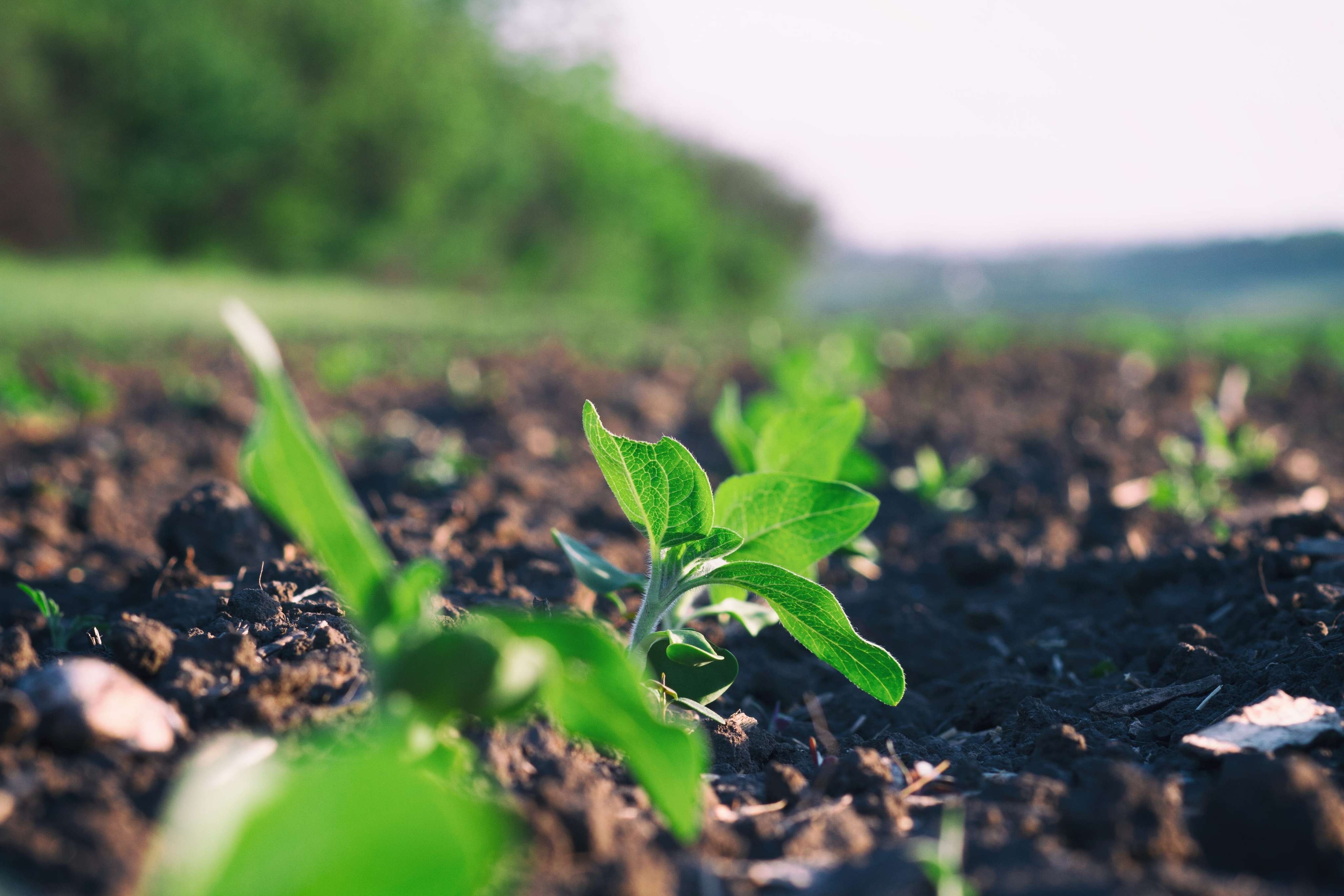
Why Good Gut Health Depends on Healthy Soil
Interviewer: Could you please explain the correlation between the gut microbiome and soil biodiversity?
Dr Megan Rossi: Interestingly, research has shown that our gut microbiome, the trillions of bacteria that live inside us, actually have started to decline over the past decade or more. There is some really interesting emerging research that highlights the soil diversity as well as our gut microbiome diversity. Although research on the gut-soil link is very much in its infancy, findings suggest they could be linked, and that’s why it’s incredibly important that we do support things like our soil health if we want to really maximize our gut health as well.
Interviewer: Have you, over the years, seen a decline in health because of how our food is grown?
Dr. Megan Rossi: Apart from soil health, there are many other factors linked, like accessibility to food. Another factor is the choice of crops. Farmers may choose not to grow certain species of crops because of production costs and other factors, and that further reduces biodiversity. This is part of a bigger issue.
One of the key predictors of our gut health is actually eating a wide variety of plants. In fact, one research study showed that people who ate at least 30 different types of plants as part of their weekly diet had better gut health than those who repeatedly ate the same 10 plant varieties. If you really want to support your gut health, I recommend eating as many different types of plants as you possibly can.

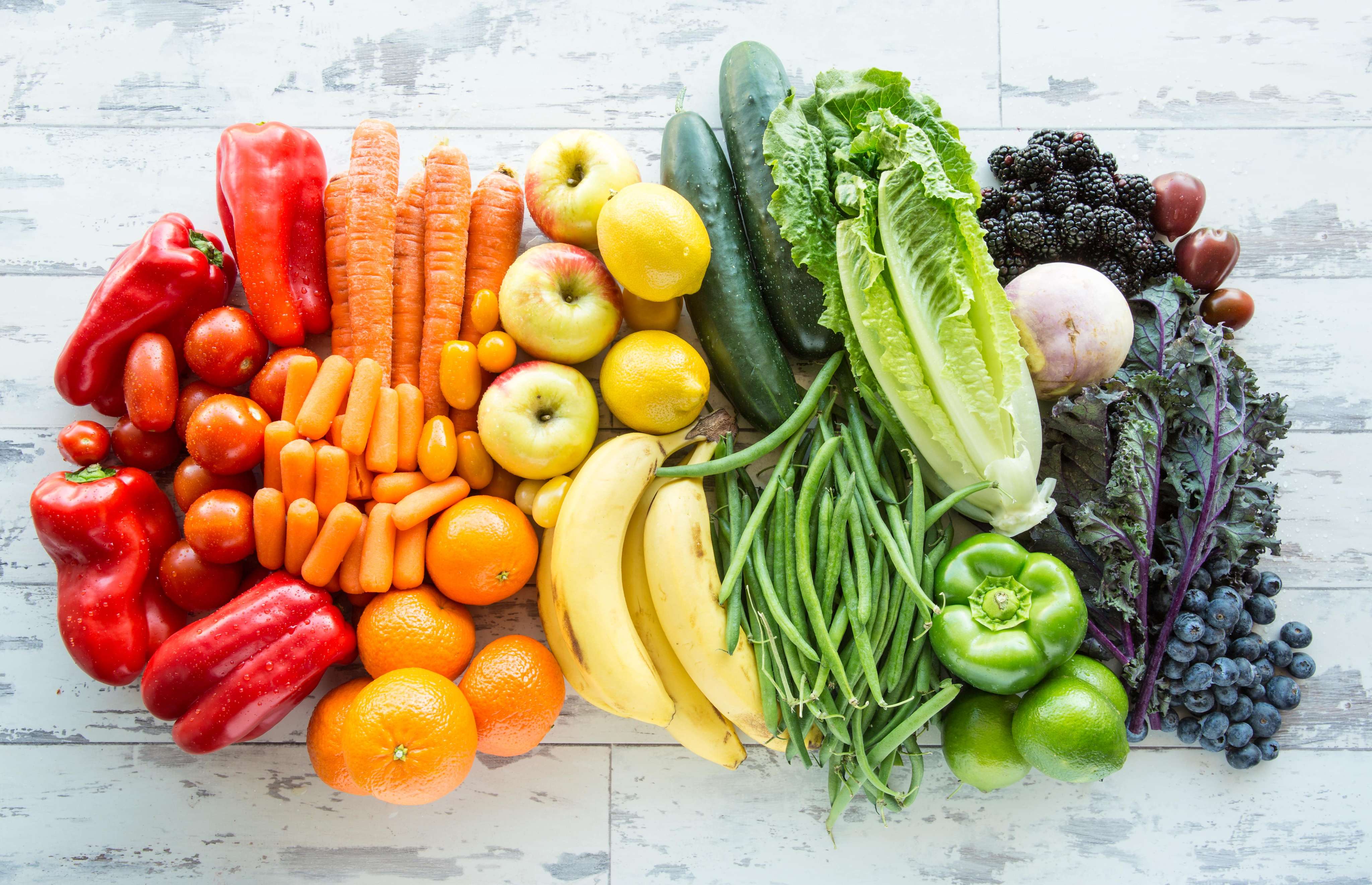
Eat the Rainbow and Save Soil
Interviewer: Your thoughts on alternate sources of nutrition like pills and future foods?
Dr. Megan Rossi: Though this subject is rather huge and complex, I can point at one of the things that Mother Nature has given us, this category of nutrients called phytonutrients. They’re types of beneficial plant chemicals, and there are literally tens of thousands of them. The thing is, we actually don’t know how to manufacture them in labs. That’s why I do recommend that we get our nutrition from plants, versus relying just on supplements.
People with better gut health also have stronger immune systems.
Another thing that’s really interesting about plants is these chemicals called polyphenols. People have associated red wine and dark chocolate with health because they are good sources of polyphenols. What’s really important about polyphenols is the gut bacteria can digest most of them and help our body absorb them. In fact, 90% of polyphenols are thought to be digested by the gut bacteria. So again, without the bacteria, we probably wouldn’t get the health benefits of those polyphenols.
Interviewer: Do you think our immunity is down because of the kind of food that we eat, and could this make us more susceptible to infectious diseases?
Dr. Megan Rossi: We know that 70% of our immune system actually lives along our nine-meter digestive tract. And we certainly do see the clinical trials highlighting that people with better gut health also have stronger immune systems.
Interviewer: How would you sum up the correlation between soil health and our gut microbiome?
Dr. Megan Rossi: If you want to look after your gut health, I really do recommend you start thinking about the soil’s health because our gut bacteria’s favorite food is grown in soil. Plants essentially feed our gut bacteria, and that’s why there is that really strong link between soil health and plant health and gut health.

